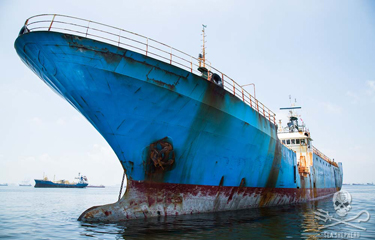The High-Level Panel for a Sustainable Ocean Economy, a consortium of ocean-dependent countries founded in 2018 to initiate action to improve global marine sustainability efforts, has issued a report detailing the threat that organized crime poses to the fisheries sector.
Also known as the Ocean Panel, the consortium consists of Norway, Palau, Australia, Canada, Chile, Fiji, Ghana, Indonesia, Jamaica, Japan, Kenya, Mexico, Namibia, Norway, Palau, and Portugal, and is supported by the United Nations Secretary-General's Special Envoy for the Ocean.
The Ocean Panel’s report, “Organized Crime in the Fisheries Sector,” was aided by work from more than 200 authors from nearly 50 countries, according to the Ocean Panel’s Expert Group co-chairs Jane Lubchenco, a professor at Oregon State University; Peter Haugan, of Norway’s Institute for Marine Research; and Mari Elka Pangestu, of the University of Indonesia.
“Organized crime in the fisheries sector is an often-overlooked barrier to securing a sustainable ocean economy, despite threatening coastal states’ food security, fostering human rights abuses and diverting government revenue to the shadow blue economy,” they wrote in the paper’s forward. “This Blue Paper spotlights the problem and draws from current promising practices for addressing organized crime in the fisheries sector to present practical opportunities for action – globally, regionally, and nationally. One of the key challenges in this space is the development of a joint understanding of the problem at hand – shedding light on the pervasive impact of this shadow industry. We feel this Blue Paper provides a solid foundation of experience and best practice that can be used to develop solutions to be implemented immediately in conjunction with sustainable fisheries management strategies.”
The 34-page report outlines the issues affecting the seafood industry related to organized crime, and offers methods by which nations can achieve greater transparency at sea to help fight organized crime.
In response to the report’s release, environmental nonprofit Oceana called on all countries to mandate that fishing vessels are equipped with and use publicly accessible tracking technology, such as automatic identification systems (AIS); release their vessel monitoring systems (VMS) data to the public; ensure that fishing vessel authorizations are publicly available; make information on the real owners of fishing vessels public; and ban their citizens from engaging in or supporting illegal, unreported, and unregulated (IUU) fishing.
Oceana Deputy Vice President for U.S. campaigns Beth Lowell called for nations worldwide to “work together to ensure that all seafood is safe, legally caught, responsibly sourced, and honestly labeled to protect the oceans and the people who depend upon them.”
“Increased transparency will leave illegal fishers and fisheries crime with fewer places to hide," Lowell said. “Oceana joins the authors of the Blue Paper in their call to governments to increase transparency in fisheries governance and take action against organized crime in the fishing sector.”
Photo courtesy of Sea Shepherd







